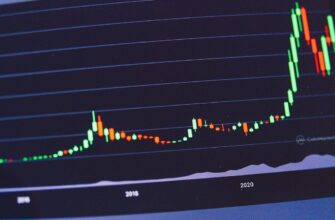The Indian government’s landmark crypto tax framework, introduced in the 2022 Union Budget, has transformed how digital assets are regulated. With strict compliance requirements and significant financial implications, understanding these new crypto tax laws in India is crucial for every investor. This guide breaks down key provisions, compliance steps, and strategic insights to help you navigate this evolving landscape.
## Understanding India’s Virtual Digital Asset (VDA) Tax Framework
India’s Finance Act 2022 amended the Income Tax Act to formally recognize cryptocurrencies, NFTs, and other digital assets as “Virtual Digital Assets” (VDAs). This classification subjects all VDA transactions to specific tax rules, marking a pivotal shift from the previous regulatory ambiguity. The laws apply uniformly to residents and entities operating within India, regardless of where exchanges are based.
## Key Provisions of India’s Crypto Tax Laws
### 1. 30% Flat Tax on VDA Income
All profits from transferring VDAs (selling, trading, or exchanging) attract a flat 30% tax, plus applicable surcharge and 4% health cess. Crucially:
– No deductions allowed except original acquisition cost
– Applies regardless of holding period (short-term or long-term)
– Includes crypto, NFTs, and future government-notified digital assets
### 2. 1% TDS on Transactions
A 1% Tax Deducted at Source (TDS) applies to VDA transfers exceeding:
– ₹50,000 per transaction for specified taxpayers
– ₹10,000 per transaction for non-specified taxpayers
Exchanges must deduct this tax at the time of transaction settlement, impacting liquidity.
### 3. Loss Set-Off Restrictions
VDAs face harsh loss treatment:
– Losses **cannot** offset gains from other VDAs
– Losses **cannot** reduce income from stocks, real estate, or salary
– Losses **cannot** carry forward to future financial years
### 4. Gift Tax Implications
Receiving VDAs as gifts exceeding ₹50,000 annually is taxable at 30% in the recipient’s hands, except for transfers from lineal relatives or inheritance.
## Compliance Deadlines and Effective Dates
– **30% Tax & Loss Rules**: Effective April 1, 2022 (FY 2022-23 onwards)
– **1% TDS**: Enforced since July 1, 2022
– **Reporting**: Disclose all VDA holdings and transactions in annual ITR filings
## Impact on Crypto Investors and Traders
– **Reduced Profit Margins**: The 30% tax + 1% TDS erodes returns, especially for active traders
– **Record-Keeping Burden**: Must log every transaction timestamp, value (INR), and asset type
– **Market Shifts**: Many traders shifted to decentralized exchanges (DEXs) or reduced volumes due to TDS cash flow constraints
– **HODLer Advantage**: Long-term holders benefit from deferred tax liability until sale
## 5-Step Compliance Checklist
1. **Document Transactions**: Maintain logs of buys/sells with dates, values, and wallet addresses
2. **Verify TDS Deductions**: Check exchange dashboards for deducted TDS and collect Form 16A
3. **Calculate Taxable Income**: (Sale Price – Purchase Price) for each asset, minus eligible costs
4. **File ITR Accurately**: Report under “Income from Other Sources” using Schedule VDA
5. **Reconcile Annually**: Match exchange 26AS statements with your records
## Frequently Asked Questions (FAQ)
**Q1: Does mining or staking crypto attract tax?**
A: Yes. Rewards from mining/staking are taxed as income at 30% based on fair market value when received. Subsequent sales incur additional tax on gains.
**Q2: Are foreign exchange transactions taxable?**
A: Absolutely. The laws apply globally—all VDAs held on international platforms must be reported in your Indian tax return.
**Q3: Can I deduct exchange fees or gas costs?**
A: No. Section 115BBH prohibits all deductions except the original purchase cost. Transaction fees aren’t claimable.
**Q4: How is NFT trading taxed?**
A: NFTs qualify as VDAs—sales attract 30% tax + 1% TDS. Even free NFT transfers may trigger gift tax liabilities.
**Q5: What penalties apply for non-compliance?**
A: Failure to report incurs 50-200% penalty on tax due, plus interest. Delayed TDS payments attract 1.5% monthly interest.
India’s crypto tax laws signal regulatory recognition while imposing heavy compliance burdens. With the 30% flat rate among the world’s highest, investors must prioritize accurate reporting and strategic planning. Consult a tax professional specializing in VDAs to optimize your position—non-compliance risks severe penalties in this closely monitored sector.








